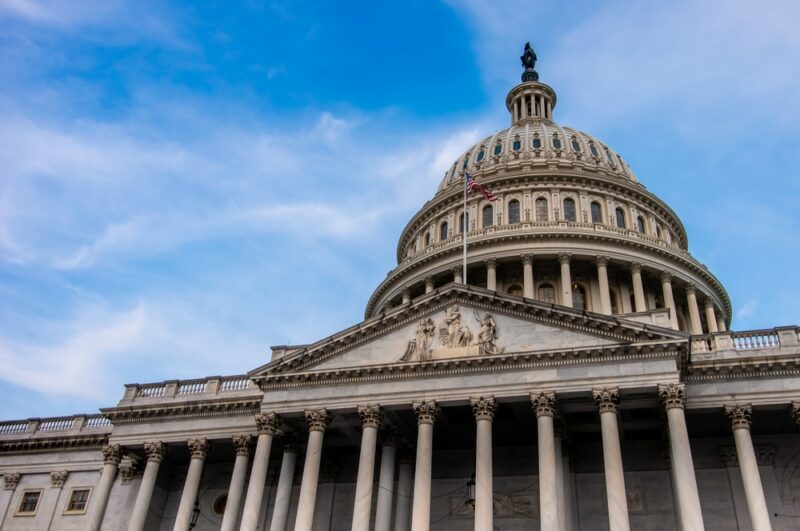The prospect that the U.S. government may shut down during the ongoing COVID-19 pandemic became more of a threat when President Trump vetoed a defense policy bill. The President’s veto threw Washington into turmoil as he and his family headed to Mar-a-Lago for his last presidential Christmas.
The veto is the most recent evidence of Trump’s anger at Congressional Republicans. The President sought to change complex legislation that passed Congress with bipartisan support, this after many months of tough negotiation.
Following through on his threat, the President made good on a promise to veto the defense bill. Trump is demanding the bill that funds the federal government, as well as providing a much-needed coronavirus aid package, be changed.
Should the President follow through on vetoing the bill, large segments of the government will start to shut down as early as next week. The veto comes at a time when vaccines developed by Moderna and Pfizer are being distributed, and government officials are working to overcome the impact of a massive hacking attack.
President Trumps Objections
With less than four weeks left in office, the President is angry that some Republican Members of Congress have acknowledged his loss in the November election. President-elect Biden will be sworn in on the steps of the capital on January 20.
The defiance policy bill has passed every year for the last 59. Trump said he had vetoed the bill this year because of certain objections, one of which was protection against liability for companies engaged in online social media. Trump also objected to the renaming of military bases currently named after generals who fought for the south during the Civil War.
Both Democrats and Republics objected to the veto. Senator Mark Warner (D-Va) stated that he looked forward to overriding what he said was a “fruitless and ridiculous” attempt to undermine the national security of the country.
President Surprised his Closest Allies
President Trump posted a video on social media on Tuesday evening, surprising some close officials. In the video, Trump demanded lawmakers revise the part addressing the coronavirus pandemic. The President wants to more than triple the payments made to each American, from the $600 agreed upon to $2000.
The video came as a surprise to Treasury Secretary Mnuchin. The secretary was involved in the talks and is on record as backing the original proposal of $600. Aides believed they had talked the President out of his demand for $2000. The $600 figure was that topic of discussion by members of Congress for a week prior to being backed.
No Reasons Given
The President did not specifically state his reasoning for vetoing the bill. Apparently, he is hoping the bill will be modified by Congress, even after months of difficult negotiations. As recently as last Sunday (Dec 20), the White House said the bill would be signed into law upon presentation to the President.
Congress is scheduled to adjourn on the last day of the year. A new Congress takes over January 3. Under these circumstances, the bill will be automatically vetoed after 10 days if the President does not take action.
As well as increasing COVID-19 payments, Trump demanded that foreign aid be stripped from the bill. Foreign aid is something that has been included in every spending bill and was asked for by his administration last year. The President took exception to other funding activities included in the 5,500-page bill, including funding for the Smithsonian museum.
Members of The House of Representatives are due to return to Washington on December 28 to vote on whether or not to override the President’s veto. Government funding is set to expire on the same day.
WeInvests is a financial portal-based research agency. We do our utmost best to offer reliable and unbiased information about crypto, finance, trading and stocks. However, we do not offer financial advice and users should always carry out their own research.
Read More













